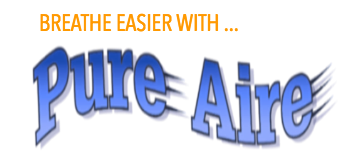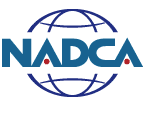GOT QUESTIONS? WE'VE GOT ANSWERS! - CALL US @ 1 (856) 205-9000
DUCT CLEANING Q AND A
With over twenty years cleaning air ducts and dryer vents we like to think we've seen it all. We have cleaned residential, commercial, and industrial ventilation systems of all shapes and sizes and we have learned a great deal.
Below are answers to some of the many questions that we are often asked. We hope this list of frequently asked questions will help you to determine if your home or business would benefit from our professional duct cleaning services.
Can't find an answer to your question? No problem. Just give us a call, or fill out the form to your right and our duct cleaning specialists will answer any questions you have.

Why should air ducts be cleaned?

Studies have shown that indoor air can be 2 to 5 times MORE polluted than outside air. Most disposable filters remove about 10% of these pollutants allowing 90% to enter the air system, even during the construction of a new home. The pollutants contain dust, pollen, mold spores, animal dander and much more. These materials collect in the furnace, air conditioner and duct surfaces, just as they do on the furniture and floor surfaces. The furniture and floor are cleaned regularly but the duct surfaces are hidden from view and can only be reached by specialized duct cleaning equipment. These pollutants can migrate out into the room again, or become a food source for mold and bacteria, which can thrive in this dark comfortable environment from high humidity or moisture from the air conditioner or humidifiers. Biological growth can release mold spores or toxins into the air system.

How can mold grow in a duct system and what problems can it cause?

Mold spores require a stable temperature, a food source and moisture to live and reproduce. Dust and dirt that go through the filter are a good food source. The furnace/air conditioner is designed to maintain a comfortable temperature, and moisture is available from humid conditions in the environment, the humidifier in the furnace or the cooling coils in an air conditioner. Live molds can release spores that will trigger allergic or asthmatic reactions, sometimes severe, in about 10% of the population. Mold, both living and dead, can produce toxins that may cause short term allergic reactions. Long term exposures to low levels of some mold toxins can result in permanent chemical sensitivity to common compounds in the environment.

Will Air Duct Cleaning Improve Indoor Air Quality?

Dirt and dust within your ventilation system harbors dust mites, allergens, chemical compounds, and other contaminants which are then circulated throughout your home or business. It stands to reason that removing these contaminants from the system will reduce the amount of impurities being circulated through the air, thereby improving the overall indoor air quality.

How Much Does Duct Cleaning Cost?

There are many factors that can affect the cost of professional duct cleaning - size of your home, number of vents, and even the configuration of your duct work. On average, a full system cleaning will run between $300 and $500 for a typical single family home.

How Often Should My Air Ducts Be Cleaned?

Most air duct cleaning professionals agree that you should have your ventilation system cleaned every three to five years. If you smoke, have pets, or are particularly sensitive to airborne allergens, more frequent cleanings may be beneficial.

How Should My Ventilation System Be Cleaned?

A proper air duct system cleaning should apply the NADCA's source removal guidelines. Source removal duct cleaning is accomplished by securing a negative HEPA vacuum to the ductwork, blocking off all the grills but the one being cleaned, and using agitation devices to dislodge debris. All accessible parts of your HVAC system should be cleaned including air handler components such as blowers, evaporator coils, wiring and any other accessible areas that may contain dust and/or contaminants.

Why Choose A Certified NADCA Member Company?

The National Air Duct Cleaners Association sets the standards for professional duct cleaning services and members must meet strict requirements for cleaning practices, education, licensing, ethical advertising, and customer service. Using a NADCA member company helps to ensure that you do not get scammed by unscrupulous providers.

Will Air Duct Cleaning Lower My Energy Bill?

Dirty air ducts reduce air flow causing your HVAC system to work harder and longer to produce the desired results. Professional air duct cleaning will help to improve air flow, system efficiency, and extend the life of the system as a whole.

How Long Does Air Duct Cleaning Take?

Depending on the number of vents and the configuration of your ventilation system, two trained technicians will take between two and four hours to thoroughly clean an average size home or business.

How Can I Tell If My Ducts Need Cleaning?

There are several indications that your HVAC system is due for a cleaning, inefficient heating or cooling, excessive dust accumulation, and unexplained respiratory problems to name a few. Here are five ways to check your system for excessive build-up:
1) Open one of your vent covers and look inside with a flashlight, or snap a picture with your smartphone. Look for dirt, debris, or matted dust.
2) Examine the return air registers for dust build-up. If your air returns have a heavy coating of dust, you're probably due for a cleaning.
3) Examine the air filter. If the air filter is clogged with dust, then air flow is being choked off. This lets more dust settle and build up in the return ductwork.
4) Open the furnace compartment and examine the blower fan and motor for signs of dust as well as the furnace controls. The more dust you see, the bigger the problem you have.
5) Look at the air conditioning coil. (You may need to remove a panel.) If the coil is dusty or has dust clinging to the housing walls, then the air filter hasn't been working properly.
TAKE A BREATH OF FRESH AIR! CALL TODAY 1(856) 205-9000

